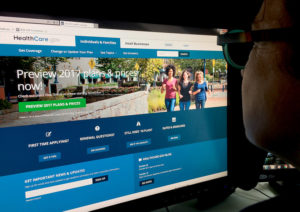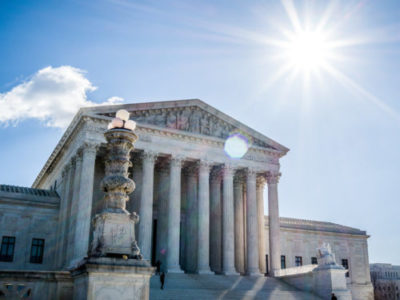Humana went full-throttle when the health insurance exchange debuted in Georgia six years ago.
The federal Affordable Care Act created exchanges in the states to help people without job-related or government coverage buy reasonably priced insurance. And Humana’s lower prices for policies attracted many Georgia exchange customers.
But Louisville, Ky.-based Humana saw this part of its business turn out to be unprofitable. The company exited the Georgia exchange at the end of 2017. ‘‘They lost a lot of money,’’ says Steve Manders, Georgia deputy insurance commissioner.

A recent U.S. Supreme Court ruling, though, may make Humana’s exchange experience much more palatable.
The court, in an 8-1 ruling, sided with health insurance companies in litigation against the federal government. The justices ruled that the government has to pay $12 billion owed to the companies under the ACA.
The 2010 ACA established “risk corridors’’ for limiting insurers’ financial risks to encourage them to offer coverage in the exchange. This provision would limit insurance companies’ gains and losses from 2014 to 2016. But Congress failed to appropriate money to cover insurers’ shortfalls, leading to litigation.
Some experts call the Supreme Court ruling and expected payouts a “windfall’’ for the industry.
For Humana, the eventual payout would be $610 million. And according to an analysis by S&P Global Ratings, roughly $280 million of that comes from the company’s operations on the Georgia exchange.
According to S&P’s analysis, other insurers will divide about $92 million from their Georgia exchange operations: Kaiser Permanente, UnitedHealthcare, Alliant, Harken Health, Cigna and Aetna.
The insurers will have to wait for the money. The Wall Street Journal reported that there are still several legal steps before insurers get any payouts.
“It could be as soon as a couple of months,” but it could take longer, said Pratik Shah, a partner at Akin Gump Strauss Hauer & Feld, the Journal reported. Insurers can only get the payments if they sue the federal government, he said.
A spokeswoman for Humana said Wednesday that the company’s move to seek recovery of payments owed “has been stayed by the court pending resolution of similar cases filed by other insurers.’’
“Humana’s goal remains to invest these dollars in enhanced services to members and the communities it serves,’’ said the spokeswoman, Nancy Hanewinckel. She did not confirm the Georgia-related payout amount, saying it hasn’t been publicly disclosed.
Will consumers get rebates?
At the launch of the exchange, Humana’s premiums were the lowest across the state, said Bill Custer, a health insurance expert at Georgia State University. “They went whole hog,’’ he said. “They felt it was low-risk because of the risk corridors.’’ But the insurer dropped out of the state exchange three years later when the revenue proved disappointing.
“The whole purpose of the risk corridors was to keep premiums low for consumers,’’ Custer noted. The court-ordered payments to the insurance companies, he said, won’t help consumers at all. “This is a windfall for insurers.’’

Kaiser Family Foundation executive Larry Levitt said recently that when the exchanges opened, “insurance companies were worried about setting their premiums too low and losing a lot of money. And that’s exactly what happened. Almost all of the insurance companies that participated in the Affordable Care Act in the early years lost a ton of money.’’
Based on the Supreme Court ruling, Levitt told Tradeoffs, “Taxpayers at some level are the losers here because the money has to come from somewhere. The winners are certainly insurance companies. I mean, they are getting a big windfall here.’’
But there may indeed be some relief for consumers.
Manders, of the state insurance department, said that the payouts to insurers could trigger a “medical loss ratio’’ rule for insurers under the ACA. That’s a requirement for most insurance companies to spend at least 80 percent of their premium income on health care claims and quality improvement.
If the payouts lower that percentage, he said, rebates may have to be paid to policyholders covered by those insurers during that period.

The April Supreme Court ruling, of course, wasn’t the first ACA-related case to come before the justices, and it won’t be the last.
Twice before, the court has upheld key provisions of the health care law.
The latest challenge the court will hear involves the individual mandate, a part of the ACA that required most Americans to have health insurance and put a special tax on those who didn’t. In 2017, Congress reduced that tax to zero, effectively ending enforcement of the insurance requirement.
Texas, joined by a coalition of other Republican-led states, has argued that without an enforceable mandate, the entire ACA is unconstitutional.
Georgia is one of the states fighting to overturn the ACA.

